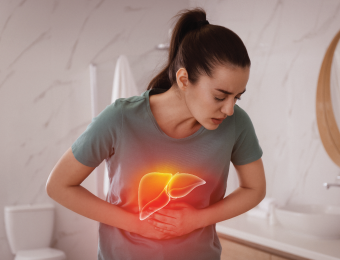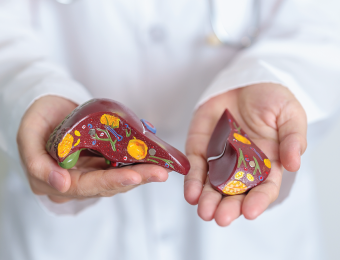
Bloated Belly, Feeling Full
Pattama Kiatpapan, M.D.
What are the possible causes of bloating, feeling full, and a seemingly enlarged belly?
Bloating and feeling full may be caused by various factors, such as dietary habits like consuming low-fiber foods, drinking insufficient water, lack of physical activity, or certain medications that can cause constipation. Common culprits include calcium and iron supplements, or it could be due to some underlying conditions like hypothyroidism or neurological disorders. Additionally, it could indicate abnormalities within the intestines, such as colon cancer."
Normally, what constitutes healthy bowel movements?
Normal bowel movements typically involve going no more than three times a day and no less than three times a week. The stool should have a normal consistency, neither too loose nor too hard.
Is it considered abnormal if I don't have a bowel movement every day?
No, it's not considered abnormal. Having a bowel movement every other day is normal as long as the stool is not hard or in pellet form.
Bloating and feeling full may be caused by various factors, such as dietary habits like consuming low-fiber foods, drinking insufficient water, lack of physical activity, or certain medications that can cause constipation. Common culprits include calcium and iron supplements, or it could be due to some underlying conditions like hypothyroidism or neurological disorders. Additionally, it could indicate abnormalities within the intestines, such as colon cancer."
Normally, what constitutes healthy bowel movements?
Normal bowel movements typically involve going no more than three times a day and no less than three times a week. The stool should have a normal consistency, neither too loose nor too hard.
Is it considered abnormal if I don't have a bowel movement every day?
No, it's not considered abnormal. Having a bowel movement every other day is normal as long as the stool is not hard or in pellet form.
If you want to normalize your bowel movements, here's what you can do:
- Eat High-Fiber Foods: Consume foods rich in fiber such as vegetables, fruits, and whole grains.
- Stay Hydrated: Drink an adequate amount of water, approximately 2 liters (8 glasses) per day.
- Establish Regular Bowel Habits: Try to have a bowel movement at the same time each day, and make sure to allocate enough time for it.
- Exercise Regularly: Engage in regular physical activity to help stimulate bowel movements and promote overall digestive health.
If after adjusting your lifestyle habits, your bowel movements still don't improve and you experience other symptoms such as abdominal pain, blood in the stool, unexplained weight loss, or persistent diarrhea or constipation, it's important to consult a doctor to investigate any underlying issues with your intestines, possibly through a colonoscopy.
03 Mar, 2020

Pattama Kiatpapan, M.D.
Specialties Internal Medicine, Gastroenterology
 EN
EN
 TH
TH CN
CN




